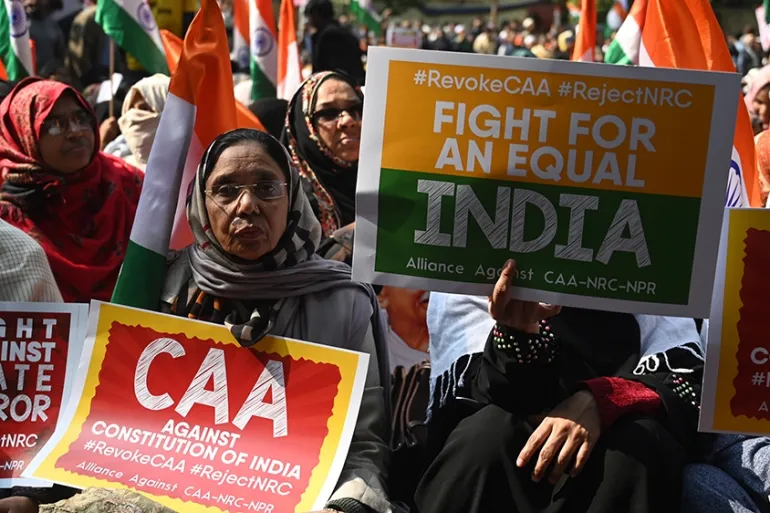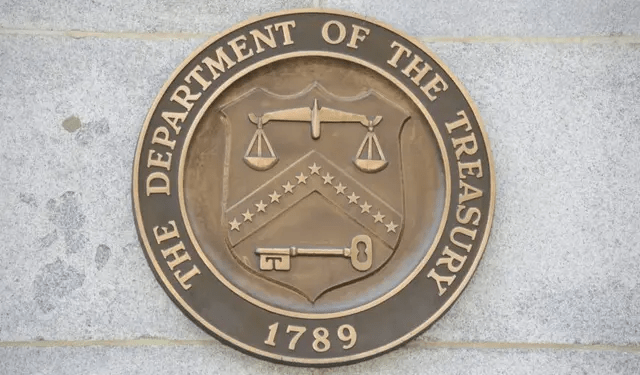The Indian government has announced rules to implement the Citizenship Amendment Act (CAA).
“The Modi government announces implementation of Citizenship Amendment Act,” a government spokesman said.
“It was an integral part of BJP’s 2019 [election] manifesto. This will pave [the] way for the persecuted to find citizenship in India,” he said, referring to the ruling Bharatiya Janata Party (BJP).
The announcement on Monday, March 11, 2024, came weeks before Prime Minister Narendra Modi seeks a rare third term for his Hindu nationalist government.

The controversial law passed in 2019 by Modi’s government allowed Indian citizenship for non-Muslim refugees from India’s neighbouring countries.
It declared that Hindus, Parsis, Sikhs, Buddhists, Jains and Christians who fled to Hindu-majority India from mainly Muslim Afghanistan, Bangladesh and Pakistan before December 31, 2014, were eligible for citizenship.
The law excludes Muslims, who are a majority in all three nations.
The law was declared “anti-Muslim” by several rights groups, raising questions over the secular character of the world’s largest democracy.
The law was approved by Indian Parliament in 2019, but Modi’s government had held off with its implementation following nationwide protests over its passage.
Violence broke out in the capital, New Delhi, during the protests in which dozens of people, most of them Muslims, were killed and hundreds injured during days of rioting.
Muslim groups claim that the law, combined with a proposed National Register of Citizens (NRC), can discriminate against India’s 200 million Muslims – the world’s third-largest Muslim population.
They fear the government might remove the citizenship of Muslims without documents in some border states.
The National Register of Citizens is part of Modi government’s effort to identify and weed out people it claims came to India illegally.
The government denies accusations that it is anti-Muslim and has defended the law, calling it a humanitarian gesture.
It said that the law is needed to help minorities facing persecution in Muslim-majority nations and would not be used against Indian citizens.
It called the earlier protests politically motivated.
“These rules will now enable minorities persecuted on religious grounds in Pakistan, Bangladesh and Afghanistan to acquire citizenship in our nation,” Home Minister, Amit Shah noted on X.
Shah said that Modi had “delivered on another commitment and realised the promise of the makers of our constitution to the Hindus, Sikhs, Buddhists, Jains, Parsis and Christians living in those countries”.
Modi’s Bharatiya Janata party promised the law’s implementation in its 2019 election manifesto.

CAA Seen As Effort To Polarise Elections
India’s main opposition, Congress party questioned the announcement, saying “the timing right before the elections is evidently designed to polarise the elections.”
In a statement, human rights watchdog, Amnesty India, called the law “discriminatory” and said that it “goes against the constitutional values of equality and international human rights law.”
It added that the law “legitimises discrimination based on religion” and is “exclusionary in its structure and intent.”
Human Rights Watch also called it “discriminatory” and said that “religion is a basis for granting citizenship” for the first time in India.
India is home to 200 million Muslims who make up a large minority group in the country of more than 1.4 billion people.
They are scattered across almost every part of India and have been targeted in a series of attacks that have taken place Modi first assumed power in 2014.
Critics say Modi’s conspicuous silence over anti-Muslim violence has emboldened some of his most extreme supporters and enabled more hate speech against Muslims.
READ ALSO: Macron Proposes Bill For Assistance In Dying






















